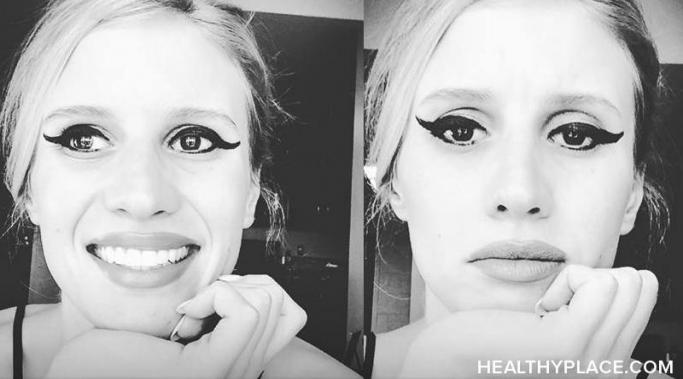Blogs
Start to live your purpose and choose your destiny now. Don't let life just happen to you. When you truly believe that you control your life rather than life controlling you, then you are free to choose your destiny. But, many of us spend years living as if life just happens to us. We live on autopilot, going through the motions without examining if how we live is truly how we want to live, if who we are is who we want to be. Let's talk about how to start to live your purpose
Childhood mental disorders are not always the parents' fault. When I graduated from college, my mother dragged me to see a Christian psychiatrist who she was convinced could fix me. She asked the psychiatrist what caused my borderline personality disorder (BPD). The psychiatrist looked her in the eye and explained that BPD is caused by poor parenting. That is not always the case, and we as a society need to change our attitude that childhood mental disorders and illnesses are somehow the parents' fault.
More and more, people push for discussing mental health with children and to include education on mental health, mental wellness, and mental illness in the classroom and outside of it (Where is Mental Illness Education?). I wholeheartedly agree with this idea because it has the potential help children recognize mental health trouble in themselves and in others, and to know there is something that can be done if they’re struggling. Another big reason for the push is the aim to reduce stigma, but I can’t think of an instance in which it was said there should be lessons about stigma, too. Discussing mental health stigma is just as important as talking about mental illness.
Hey HealthyPlace Community! So glad to have you here!
Negative thinking patterns can interfere with self-esteem and confidence. Therapist Emily Roberts has five tools that can help you transform your thoughts.
Knowing there are benefits of going to therapy doesn't make the decision to go much easier. The decision to go to therapy can be a deeply personal one based on a number of key factors. For me, the decision was not at all easy. In fact, it took me years of knowing I probably needed to go to therapy before I actually went. In the process of realizing that I needed some talk therapy, I also realized a benefit of going to therapy was defeating indecision.
I have schizoaffective disorder, which is a combination of schizophrenia and bipolar disorder. I recently completed a partial hospitalization for a schizoaffective disorder program, and taking the train to the hospital every day reminded me so much of the time, nine years ago, when my schizoaffective symptoms got so bad that I was admitted as an inpatient in the psychiatric ward of this same hospital. Here’s what it’s like to experience hospitalization for schizoaffective disorder or any mental illness.
If you live with anxiety, there’s a good chance that you’ve had conversations with your anxiety. “Conversation” might be too generous a term for the inner dialog that occurs with anxiety. A conversation with anxiety isn’t really a back-and-forth, rational exchange of ideas. Far from civil banter, anxiety’s talk is loud-mouthed, one-sided, boorish, and toxic. It is through this type of manipulative conversation that anxiety is able to maintain power over us. Let’s take a look at an example of a conversation with anxiety to objectively see one of its methods of manipulation.
Dissociative identity disorder (DID) and other dissociative disorders go hand-in-hand with signs and symptoms of dissociation. You can find these signs of dissociation included in many lists, and in books like the Diagnostic and Statistical Manual for Mental Disorders, Fifth Edition (DSM-5). But symptoms of dissociation aren't always so black and white. The reality of dissociation goes beyond the obvious signs and symptoms of dissociation that you read about. So what is dissociation really like?
Stop saying “I can’t” when it comes to eating disorder recovery. "I can't" is a phrase uttered out loud or in the secret caverns of our minds. I can’t recover. I can’t eat that. I can’t stop exercising. I can’t stop throwing up. I can’t keep food down. I can’t love myself in the mirror. I can’t love the part of my body that I despise. I can’t be kind to myself. Eating disorders are filled with the words “I can’t,” but there’s one ultimate reason to stop saying "I can't" for the sake of your eating disorder recovery (Why We Believe Eating Disorder Lies).








